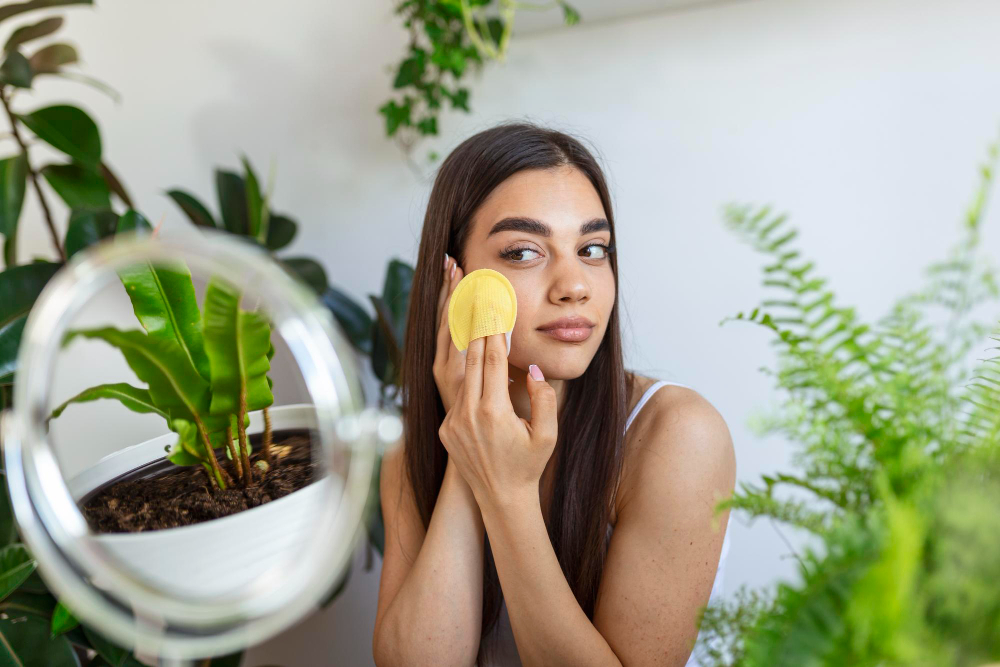The Ultimate Guide to Skin Care – Tips and Tricks
Skin care is an important part of our daily routine. It’s not just about looking good, but also feeling good. Taking care of your skin helps you feel more confident and comfortable in your own skin. With so many products and techniques out there, it can be overwhelming to know where to start. That’s why we’ve created the ultimate guide to skin care, filled with tips and tricks to help you achieve healthy, glowing skin.
Understanding your skin type is crucial first and foremost. Oily, dry, combination, and sensitive skin types are the four main categories. You can choose the best products and create a skincare routine that works for you by understanding your skin type.
If you have oily skin, you’ll want to look for products that help control oil production. Products with salicylic acid or benzoyl peroxide are great for controlling acne. You should also avoid heavy, oil-based products, which can clog pores and lead to breakouts.
If you have dry skin, you should choose items that hydrate and moisturise your skin. Look for items that contain hyaluronic acid, glycerine, or shea butter. Additionally, avoid strong cosmetics that could deplete the natural oils in your skin.
If you have combination skin, you should look for solutions that moisturise while also balancing oil production. Choose products with alpha hydroxy acids (AHAs) or beta hydroxy acids (BHAs) or other mild exfoliants. On parts of your skin that are prone to oiliness, you should also stay away from heavy, oil-based cosmetics.
If you have sensitive skin, you should search for soft, fragrance-free products. Try to choose items that have calming elements like oatmeal, chamomile, or aloe vera. Additionally, stay away from harsh scrubs and products with a lot of active chemicals because they can irritate your skin.
Once you know your skin type, you can start building a skincare routine. Your routine should include cleansing, moisturizing, and protecting your skin from the sun.
Cleaning your skin is essential for removing debris, oil, and makeup. Utilise a mild cleanser that is suitable for your skin type. Before cleaning your skin, it’s crucial to take off any makeup you may be wearing. To do this, you can use micellar water or makeup remover.
Moisturizing is important for keeping your skin hydrated and healthy. Use a moisturizer that’s appropriate for your skin type. If you have oily skin, look for a lightweight, oil-free moisturizer. If you have dry skin, look for a heavier, more emollient moisturizer.
Sun protection is crucial for preventing early ageing and lowering your risk of developing skin cancer. Make use of a broad-spectrum sunscreen with a minimum SPF of 30. Even when it’s cloudy outside or you’re inside, use it every day.
You can take additional steps in addition to the fundamental ones of washing, moisturising, and conserving to improve the health of your skin. Here are some additional tips and guidance:
Exfoliate regularly:
Exfoliating removes dead skin cells and helps keep your skin looking bright and fresh. Use a gentle exfoliant once or twice a week, depending on your skin type.
Use a serum:
Serums are lightweight, highly concentrated products that target specific skin concerns. Look for a serum with ingredients like vitamin C, retinol, or hyaluronic acid.
Get enough sleep:
Lack of sleep can lead to dull, tired-looking skin. Aim for 7-8 hours of sleep per night to keep your skin looking its best.
Stay hydrated:
Drinking plenty of water helps keep your skin hydrated from the inside out. Aim for at least eight glasses of water per day.
Eat a healthy diet:
What you eat can have a big impact on the health of your skin. Aim to eat a diet rich in fruits, vegetables, whole grains, and lean proteins.
Manage stress:
Stress can lead to breakouts and other skin issues. Find ways to manage your stress, such as practicing yoga, meditation, or deep breathing exercises.
Don’t touch your face:
Touching your face can transfer dirt and oil from your hands to your skin, leading to breakouts. Try to avoid touching your face as much as possible.
Use a humidifier:
Dry air can lead to dry, itchy skin. Use a humidifier in your home or office to add moisture to the air.
Don’t overdo it:
Using too many skincare products or active ingredients can irritate your skin. It’s easy to get carried away with skincare products. Maintain a basic routine with a few essential products that are suitable for your skin type.
Be patient:
Skincare is a long-term commitment. It can take time to see results, so be patient and stick with it.
Along with these pointers and tricks, it’s critical to pay attention to how various products affect your skin and modify as necessary. Stop using the product and try another if you experience any itching or redness.
In conclusion, taking care of your skin is important for both your physical and mental health. With the right products and techniques, you can achieve healthy, glowing skin. Remember to start by understanding your skin type and developing a skincare routine that works for you. Incorporate additional tips and tricks to enhance the health of your skin, and be patient as you work towards your skincare goals. Your skin will thank you for the extra care and attention.

